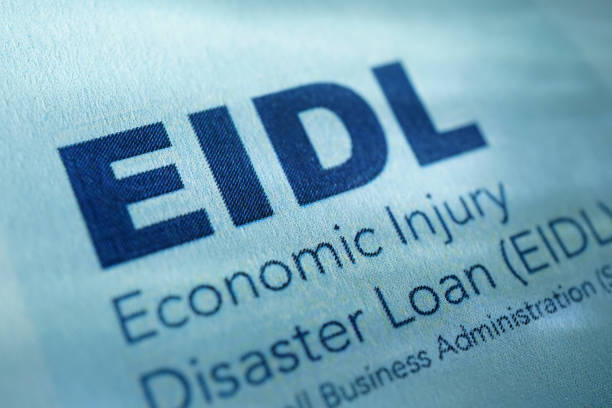What Increases Your Total Loan Balance FAFSA?
What increases your total loan balance FAFSA? This article reveals all you need to know about the Free Application for Federal Student Aid (FAFSA) and factors that can increase your loan balance.
You might anticipate that your loan balance will decrease as you make payments, however, it doesn’t always turn out this way. They could sometimes exceed the amount you initially took out.
Several individuals are relying on student loans due to rising college expenses. Nearly 90% of students take out student loans to pay for their private, for-profit universities.
Nevertheless, Moody’s estimates that almost 50% of student loan borrowers are still paying down their loan five years after they first began doing so.
ALSO READ:
How to get prescribed antidepressants without insurance
Can you apply for EIDL loan twice?
What is FAFSA?
The Free Application for Federal Student Aid (FAFSA) is the formal application for federal financial help to cover higher education costs.
In addition, several states, certain schools, and universities consider it when determining financial assistance.
According to the data gathered from the application, the FAFSA precisely decides who will get assistance like loans, scholarships, and grants.
There is a 19-month window for each FAFSA application, beginning on October 1 of the previous year and finishing on June 30 of the award year.
For instance, FAFSA applications for the academic session of 2022–2023 may be filed from October 1, 2021, and June 30, 2023.
It is advisable to submit it promptly since several states have financial assistance deadlines that are much sooner than June 30, and their assistance might only be accessible to the first set of people that submitted.
What Is Interest?
Interest is the set sum that the borrower must pay the lender as compensation for lending them the funds.
A proportion of the outstanding principal amount is used to calculate interest. Direct loans have daily interest, thus interest builds up every day.
You are liable for paying interest that accumulates over all seasons, depending on whether the loan is subsidized or unsubsidized.
Unpaid interest on an unsubsidized loan could be capitalized by the lender if you fail to pay it.
What Is Capitalization?
Capitalization is the process of adding unpaid interest to the principal loan balance. When you consistently repay your federal student loans, it pays off every interest charge that arose between payments, leaving no unpaid interest.
Nevertheless, unpaid interest can accumulate in some circumstances. For instance, if you have an unsubsidized loan and do not pay monthly within the deferral term, interest accrues and becomes due.
The lender may capitalize on this unpaid interest in this situation. Additionally, the outstanding principal balance payable will rise if it capitalizes.
Furthermore, it may potentially raise the sum of your monthly payments depending on a payback arrangement.
ALSO READ:
Are small business loans installment or revolving?
Can credit card companies garnish your wages?
What Causes the Increase in Your Loan Balance?
Lenders typically schedule the repayments in such that the balance due gradually decreases.
Additionally, the loan period affects how quickly you pay back the debt. Federal student loans have a 10-year normal duration, but private loans have a 5 to 15-year tenure.
Below are some variables that may delay the loan repayment process:
Postponing Payments
Your debt will be capitalized if you momentarily cease making payments or delay payments.
Lenders offer students six months of grace at the conclusion of their education before they start paying back their loan. They are given this period to look for work and generate income.
Nevertheless, this does not in any way imply that interest capitalization won’t happen. Lenders keep on capitalizing on interest as loans keep on increasing.
Not Paying Up to the Required Amount
Its value will increase if you do not pay up to the required sum. For example, you have a $40,000 student loan with a 20-year repayment period and a 5% interest rate.
The outstanding principal sum will be $39,000 after the first year if you decide to make a $1,000 payment. There will be $2,000 in interest, bringing the amount to $41,000.
Therefore, you must make a repayment that includes the loan’s principal as well as capitalized interest if you wish to lower the loan.
Prolonged Payment Schedule
A prolonged repayment schedule often takes 20 years or longer to pay off in full. It reduces the size of the monthly repayment, hence, the due loan’s amount gradually decreases.
Additionally, it raises your interest rates. You interest rate is increased as the loan is extended and the monthly payments are lowered.
Furthermore, the overall loan amount may increase if you have skipped any payments on the prolonged schedule.
This is due to the fact that monthly payments in the initial years can only be used to pay interest and a portion of the principal. As a result, if you miss one payment each year, it may return you to where you began.
Lateness or Delays in Repayments
Typically, you do not pay back the loan right away. Rather, there are some delays based on the nature and goal of the loan.
For example, several students delay monthly payments until they graduate from college, the loan increases due to interest capitalization while students are in school.
Therefore, this causes a $40,000 debt to increase to $48,620 in the space of four years when accumulated yearly. So, the loan balance will be significantly more than it was during the first year.
Income-Driven Payments
Your loan balance will gradually increase if you utilized a federal income-driven plan. Lenders suggest income-driven plans for the borrowers depending on their earnings instead of the sum that will allow them to pay off the loan quickly.
Therefore, the debt rises because the loan payback sum is lower than the interest rates.
Errors
Errors are yet another factor that may contribute to higher balance. If you are certain that your payments were made promptly and that you skipped nothing, you can ask the lender for more information.
This kind of mistakes can be the result of algorithmic mistakes, using the inappropriate sum of payment or mixing up your account with that of another person.
There are several factors that can cause a balance to rise above the borrowed principal. However, the good thing is that there are a number of strategies to reduce the sum and prevent having to pay capitalized interest.
Therefore, before you obtain a loan, thoroughly research what can raise your loan balance and what can prevent you from paying higher.
ALSO READ:
How to invest in Airbnb without owning property?
How Can I Reduce My FAFSA Loan Balance?
You must try to pay above what is required by your payback plan. This can assist you in settling some of the principal.
If you have multiple student loans, begin by repaying the one with the biggest interest rate immediately.
If the interest rate on your loan is fluctuating, you might choose to refinance at a reduced set interest rate.
Additionally, you must try your hardest to at least cover the interest that is accumulating each month while your loans are on deferment.
If your monthly payments under a federal income-driven plan are less than the accumulated interest, you are free to enroll for a REPAYE plan. This eliminates half of the monthly capitalization of unpaid interest.
FAFSA Income Limit
There is no set income limit for FAFSA eligibility. However, variables such as the year of participation and family structure are taken into account in addition to demonstrating financial necessity.
Keyword: What increases your total loan balance FAFSA
Conclusion
We have come to the conclusion of these wonderful article on “what increases your total loan balance FAFSA.”
So many people depend on student loans because of how costly going to college can be. FAFSA offers financial assistance to pay for college expenses.
There are so many factors that can increase your loan balance such as postponing payment, not paying up to the required amount and many other factors.
In this article, we have covered certain ways you can lower your FAFSA loan balance. Kindly make sure you adhere and apply them.








